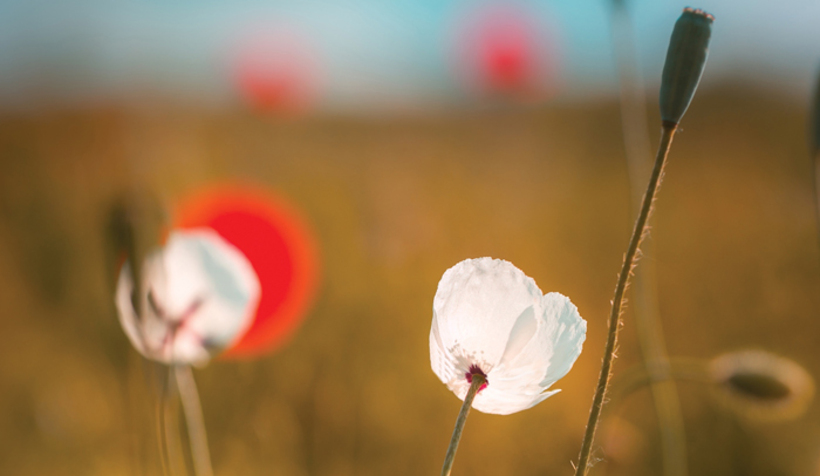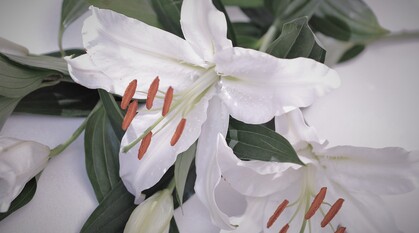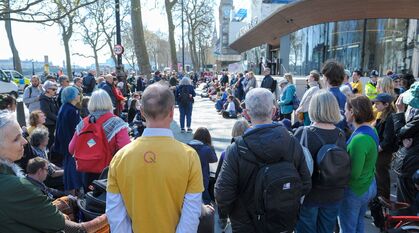Witnessing for peace at a time of Remembrance
As Remembrance Day approaches, Marigold Bentley reflects on ways to emphasise the cost of war and reaffirm a commitment to working for peace.

As Remembrance Day approaches Quakers may find themselves having to consider whether or not to attend community commemorations, church services, parades or participate in wreath-laying. As Quakers, our natural inclination is to stay away from events which seem to glorify Britain's military past. Instead we may wish to focus on events that focus on the cost of war, and that encourage people to work for peace.
Individuals who serve as town or parish councillors may well be expected to attend remembrance events. Local meetings may be invited to send representatives to take part in a Remembrance Sunday service or even to lay a wreath at a war memorial. How can we best uphold our peace testimony on such occasions?
Deciding whether or not to participate
A good place to start is to find out more about the nature of the event in which you or your local meeting is asked to participate. Does the event glorify warfare? Or is the act of solemn remembrance likely to motivate people to work to prevent war? When the nature of the event is known, the way forward should become clear.
Events which bring people together in community life are important, especially when this brings people of different faiths together. Remembrance events differ considerably from place to place. Some parades may indeed glorify war and military approaches to conflict, but some church services and acts of remembrance carry a strong message that wars should no longer be allowed to happen.
How can you witness for peace when taking part in remembrance?
Wear a white poppy as well as a red one
The red poppy signifies remembrance and sadness about those who have died in past wars. The white poppy was created as a challenge to the continual drive to war and as a lasting symbol of peace. At remembrance events please be aware that if you wear only a white poppy, it may cause offence. The red poppy has become marketed in ways that many Quakers find distasteful, but our role in relation to this is one of dignity and compassion – and to remind everyone that war is failure and peace is the goal.
Read an appropriate prayer if you are given the opportunity to do so
Spontaneous prayer would be in keeping with the Quaker tradition of worship, but it is unlikely that there would be space for this at an organised event. The next best thing would be to write your own prayer for the occasion. Do bear in mind that many services are interfaith and not only Christian. Failing that, you could choose a suitable one. Here is one example:
[QUOTE-START]
“Let us remember before God the men and women of all nations who have died as a result of war – those whom we have known and whose memory we treasure; those we never knew, and those who died unknown. We will remember all who have lived in hope, but died in vain – the tortured, the innocent, the starving and the exiled, the imprisoned, the oppressed and the disappeared.
Living God, by whose love we are united with one another across the boundaries of time and space, bring us to a new remembrance of your love and life, reflected in earth and sky, and every person who ever lived. Teach us to be reconciled to one another and to you. Amen."
Adapted from a prayer by John Ansell.
[QUOTE-END]
Talk to your friends and people in other churches about what you are doing
This is probably the most effective form of witness. Wearing a white poppy can be a good way to open conversation about the complex issues and emotions surrounding war, peace, remembrance and hope.
Quakers in Scotland produced a leaflet about the white poppy (PDF) which may be a helpful aid in these conversations.
Sell white poppies beforehand
Many Quaker meetings choose to sell white poppies in the weeks before Remembrance Day. Boxes of white poppies are available to order from the Quaker Centre Bookshop. Please email quakercentre@quaker.org.uk or phone 020 7663 1030 for further information.
This year, the Peace Pledge Union and ForcesWatch have put together special packs for schools to encourage critical thinking and foster a culture of peace. These are available for groups to buy and give to their local schools.
Participate in public conversation
There is increasing public debate about the nature of remembrance events. If you write to the local press, or call in to a local radio station, your witness will be visible to many more people. You will be able to make your message clear to those who may not understand the significance of a white poppy, for example.
You could also share your reasons for attending remembrance events or for wearing a white poppy online. Share articles from others who question the use of remembrance to glorify warfare. These stories can help people to question the assumptions they may hold, even if they do not completely persuade people. Approach these conversations in the same spirit you would with people offline.


